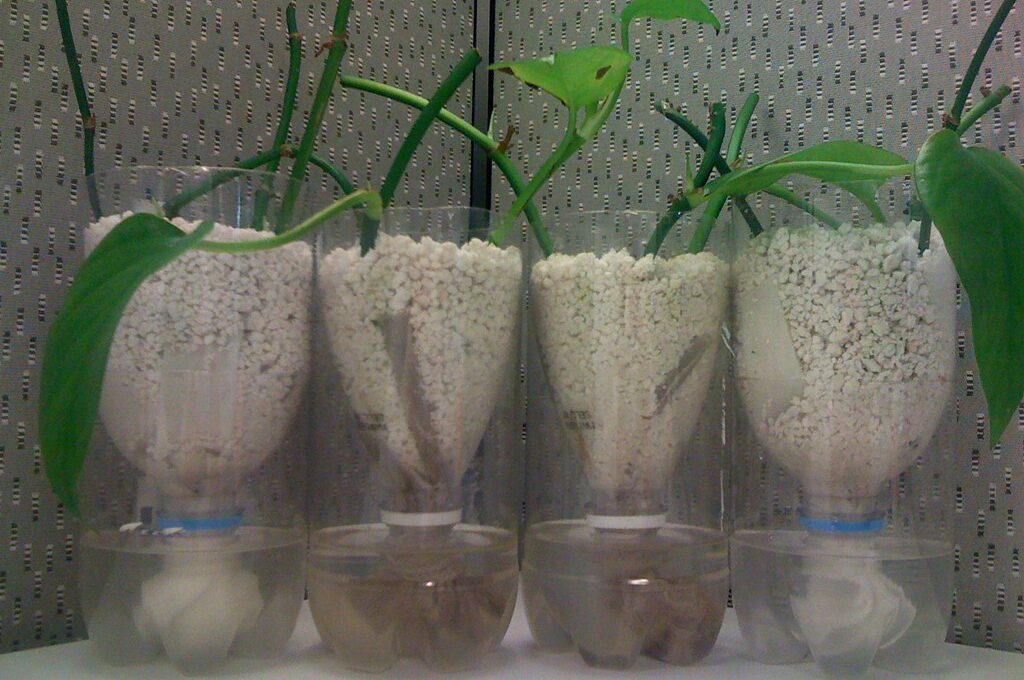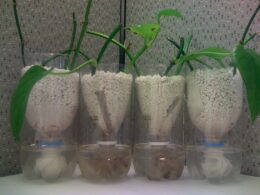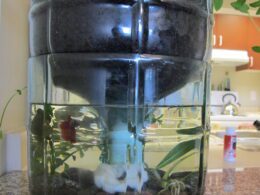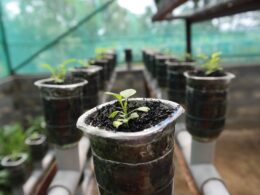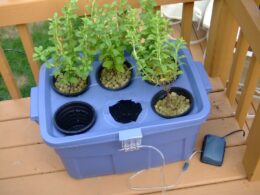Understand the Causes of Smelly Hydroponic Water
You’re likely dealing with smelly hydroponic water because of certain factors that cause unpleasant odors. One of the most common culprits is the buildup of organic matter in your system. This can be anything from dead plant matter to algae growth. When left unchecked, these organic materials can break down and create a foul smell. Another potential cause is a lack of proper aeration in your water. Without oxygenation, anaerobic bacteria can thrive and produce unpleasant odors. To combat smelly hydroponic water, consider implementing biofiltration systems. These systems use beneficial bacteria to break down organic matter and keep your water clean and fresh. Additionally, maintaining a proper pH balance in your water can also help prevent odors. A pH level between 5.5 and 6.5 is ideal for most hydroponic plants and can help keep bacteria growth in check. Don’t let smelly hydroponic water ruin your growing experience. By understanding the causes of unpleasant odors and taking steps to prevent them, you can keep your water clean and fresh. Implementing biofiltration systems and maintaining a proper pH balance are just a few ways to ensure your hydroponic system stays odor-free.Regular Maintenance and Cleaning
To maintain a fresh and clean environment for your hydroponic plants, it’s important to regularly clean and maintain your water system. This means keeping an eye on your pH levels and ensuring that they stay within the proper range. You can use a pH meter or testing kit to monitor the acidity of your water and adjust it accordingly. pH management is crucial in preventing the growth of harmful bacteria and algae that can cause odors. In addition to managing your pH levels, you should also consider water sterilization. This can be achieved through the use of UV sterilizers or ozone generators, which kill bacteria and other microorganisms in your water. While these devices can be expensive, they are worth the investment in the long run as they prevent the growth of harmful organisms that can cause unpleasant smells. Regular cleaning of your hydroponic system is also important in preventing smelly water. This includes flushing your system with fresh water and cleaning any filters or pumps that may be present. By taking these steps, you can maintain a clean and healthy environment for your hydroponic plants, and prevent the unpleasant odors that come with neglecting your water system.Use Natural Remedies
If you want to maintain a fresh and pleasant environment for your plants, consider using natural remedies to combat any unpleasant smells that may arise in your hydroponic system. One of the easiest ways is to use herbal remedies, such as adding a few drops of essential oils like lavender, peppermint, or lemon to your water reservoir. These natural oils not only help eliminate the odor but also have additional benefits, like repelling insects and promoting plant growth. Another DIY solution is to add some apple cider vinegar to your hydroponic water. This kitchen staple has antibacterial and antifungal properties that can kill off any unwanted microorganisms in your system, which are often the cause of foul smells. Simply add a tablespoon or two of apple cider vinegar to your water reservoir every week, and you’ll notice a significant improvement in the odor and overall health of your plants. Incorporating natural remedies into your hydroponic system is not only cost-effective but also a safer and healthier way to maintain your plants. So next time you notice an unpleasant smell in your system, try one of these herbal or DIY solutions before resorting to harsh chemicals or expensive treatments. Your plants (and nose) will thank you!Can Using the Best Water Source for Hydroponics Prevent Smelly Water?
Using the best water source for hydroponics is crucial in preventing smelly water. High-quality water, be it derived from reverse osmosis or filtered rainwater, eliminates the risk of foul odors caused by impurities and bacteria. By prioritizing the selection of the best water source for hydroponics, growers can maintain a clean and healthy environment for their hydroponic systems, ensuring optimal plant growth and minimizing the risk of unpleasant smells.
Install a Water Chiller
Installing a water chiller can greatly benefit your hydroponic system by maintaining a consistent water temperature. This not only promotes plant growth but also prevents the growth of harmful bacteria and algae. By keeping the water at an optimal temperature range of 65-75°F, you can ensure that your plants receive the necessary nutrients and oxygen they need to thrive. A water chiller is a cost-effective option that can save you money in the long run by preventing the need for constant water changes due to bacterial growth. Not only does a water chiller prevent bacterial growth, but it also helps to eliminate unpleasant odors that can develop in your hydroponic system. Stagnant water can quickly become a breeding ground for bacteria and algae, which can produce a foul smell that can be difficult to get rid of. A water chiller circulates the water, preventing it from becoming stagnant and reducing the likelihood of unpleasant odors. Investing in a water chiller is a simple and effective way to maintain the health of your hydroponic plants while also preventing the growth of harmful bacteria and algae. By keeping the water at a consistent temperature range and circulating it regularly, you can ensure that your plants receive the necessary nutrients and oxygen they need to grow. With cost-effective options available, a water chiller is a valuable addition to any hydroponic system.Prevention is Key
To prevent issues with your hydroponic system, it’s crucial to use high-quality nutrients, choose the right growing medium, and maintain proper temperature and humidity levels. By investing in top-notch nutrients, you can ensure your plants receive all the essential elements they need to grow strong and healthy. Additionally, selecting the right growing medium and maintaining the ideal temperature and humidity levels will help create a stable and supportive environment for your plants to thrive in.Use High-Quality Nutrients
You’ll want to invest in some top-notch nutrients to ensure your hydroponic setup stays odor-free. Nutrient solutions play a significant role in the health and growth of your plants, as well as the cleanliness of your water. Here are some tips for choosing the right nutrients:- Look for nutrients specifically designed for hydroponic systems.
- Make sure the nutrients are balanced with the proper ratio of nitrogen, phosphorus, and potassium.
- Avoid cheap, low-quality nutrients that can contain impurities and contaminants.
- Consider organic nutrients for a more natural and eco-friendly option.
- Follow the manufacturer’s instructions carefully, and don’t overfeed your plants.





